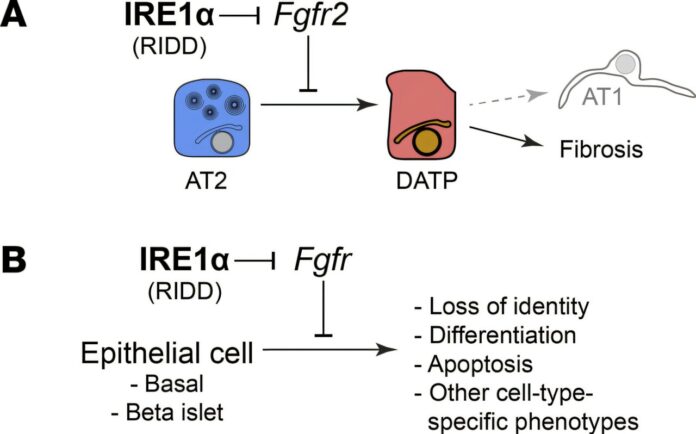Cancer researchers at Children’s Medical Research Institute have discovered an “unexpected mechanism” that our cells use to avoid cancer.
Telomeres are the protective caps at chromosome ends and are involved in aging and cancer. As we age, telomere length naturally decreases. Over the course of a lifetime, telomere shortening instructs aging cells to stop dividing. This normally functions as a critical barrier to stop cancer.
Professor Tony Cesare’s Genome Integrity Unit at CMRI are experts in this area. In this latest publication in Nature Communications, Prof. Cesare and his team worked with their collaborators at the University of Kyoto to understand the “active” role that telomeres can play in avoiding cancer.
“Most people think of telomeres as a passive entity that shorten with cell division; this is a passive fail-safe used during aging,” Prof. Cesare said. “Our data shows telomeres are much more active. They can acutely respond to stress and actively open up to turn on a cellular response that looks like aging. They do this to avoid cancer.
“This can lead to cell cycle arrest, or death, to prevent these damaged cells with chromosome errors from dividing further. This suggests telomeres have another anti-cancer mechanism that was previously unknown.”
Prof. Cesare said as well as this being an important discovery for the telomere field—this could allow researchers to potentially target telomeres to induce cell death in cancer treatment.
More information:
Diana Romero-Zamora et al, A CPC-shelterin-BTR axis regulates mitotic telomere deprotection, Nature Communications (2025). DOI: 10.1038/s41467-025-57456-8
Provided by
Children’s Medical Research Institute
Citation:
Unexpected discovery shows how cells use telomeres to avoid cancer (2025, March 17)
retrieved 18 March 2025
from https://medicalxpress.com/news/2025-03-unexpected-discovery-cells-telomeres-cancer.html
This document is subject to copyright. Apart from any fair dealing for the purpose of private study or research, no
part may be reproduced without the written permission. The content is provided for information purposes only.


